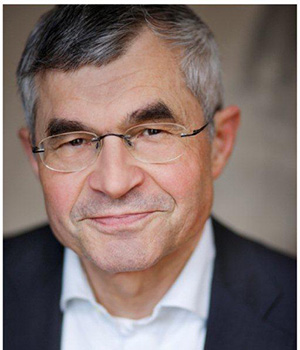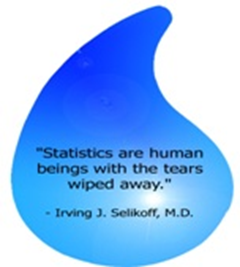Arbeitsmedizin: Forschung, Lehre, Ethik, Klinik/Begutachtung
 Prof. Dr. med. Xaver Baur hat sich im Rahmen seiner akademischen Laufbahn mit einer Reihe aktueller arbeits- und umweltmedizuinischer Themen beschäftigt. Klinische und wissenschaftliche Schwerpunkte bilden Berufsasthma, Asbestose, Silikose, Lungenfunktionsdiagnostik, Allergien, Allergene, Pollution, Irritanzien wie Isocyanate. Er ist Facharzt für Arbeitsmedizin und Innere Medizin. Bedeutsam für ihn ist die Umsetzung der Forschungsergebnisse in der Praxis und in den Regularien zum Gesundheitsschutz in der Arbeits- und allgemeinen Umwelt sowie in der Begutachtung. Prof. Baur engagiert sich diesbezüglich in Gesundheitsausschüssen und gemeinnützigen Vereinen. Er ist Präsident der germeinnützigen European Society forEnvironmental and Occupational Medicine, die die unabhängige Forschung zum Gesundheitsschutz in der Arbeits- und Umwelt fördert, öffne EOM Webseite
Prof. Dr. med. Xaver Baur hat sich im Rahmen seiner akademischen Laufbahn mit einer Reihe aktueller arbeits- und umweltmedizuinischer Themen beschäftigt. Klinische und wissenschaftliche Schwerpunkte bilden Berufsasthma, Asbestose, Silikose, Lungenfunktionsdiagnostik, Allergien, Allergene, Pollution, Irritanzien wie Isocyanate. Er ist Facharzt für Arbeitsmedizin und Innere Medizin. Bedeutsam für ihn ist die Umsetzung der Forschungsergebnisse in der Praxis und in den Regularien zum Gesundheitsschutz in der Arbeits- und allgemeinen Umwelt sowie in der Begutachtung. Prof. Baur engagiert sich diesbezüglich in Gesundheitsausschüssen und gemeinnützigen Vereinen. Er ist Präsident der germeinnützigen European Society forEnvironmental and Occupational Medicine, die die unabhängige Forschung zum Gesundheitsschutz in der Arbeits- und Umwelt fördert, öffne EOM Webseite

Occupational health: a world of false promises
United Nations agencies, WHO and the International Labor Organization (ILO), are faced with the global problem of inadequate worker protections and a growing crisis in occupational health
By Joseph LaDou, Leslie London and Andrew Watterson:
“The United Nations currently has limited ability to take on the problems of a globalized world and has limited capacity to affect major issues within member states. But it can have a useful influence in facilitating stronger oversight by broader civil society. It can do this by strengthening the national and global civil society voice in WHO and ILO structures, and by keeping conflict of interest out of policy decisions. Corporate influence on international organisations is not a new problem. It goes on in all member states and is evidenced in the neglect of occupational health and safety, and the weakness of workers’ compensation laws, in all developing countries.
UN agencies should develop stronger and unambiguous processes to manage conflict of interest in ways that equalize the influence of powerful interests with those of communities, Non-Governmental Organizations, Civil Society Organizations and Social Movements. More support should be given to protect the WHO from industry attacks and to help it increase its supply of information on occupational health and safety to developing countries, free of industry influence.”
On the other hand, the authors suggest that “the staff assigned to WHO and ILO agencies responsible for occupational health and safety should have appropriate credentials and backgrounds. The selection
process is currently removed from public view, and not subject to approval by relevant international authorities.
There is no current method of finding conflicts of interest in staff assignments. An international organization with no industry bias exists in the Collegium Ramazzini, headquartered in Bologna, Italy. The Collegium should be considered as an independent approval authority for WHO and ILO staff positions, and for technical review of publications“.
in: https://ehjournal.biomedcentral.com/articles/10.1186/s12940-018-0422-x




